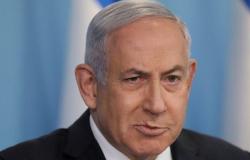The question from the title sounds almost inappropriate. After all, Russia is waging a barbaric war in Ukraine, where it destroys and kills. No, I’m not going to play devil’s advocate here because “understanding” doesn’t mean “having an understanding.” Of course, the destruction and atrocities committed by Russia cannot but be condemned. However, understanding Russia as a security factor is essential for our future. It would be a dangerous mistake to think that cutting diplomatic and energy ties solves the problem.
Russia’s war against Ukraine has entered its third year. During that time, many feelings exchanged between us. From the initial shock, to the fear of what will happen if Ukraine succumbs, to hope, as she begins to push out the aggressor, to fatigue, as silly as it sounds, when unlike the Ukrainians, we are not fighting in the trenches. Overall, however, the conviction prevailed that Russia is no longer relevant for our future considerations. Because the regime there can’t be trusted, we don’t want to do business with it and understandably don’t want to associate with it in any other way. There was even a sense of relief that the “Russian dilemma”, which regularly appeared in Czech public debates, had finally been resolved.
However, it would be a mistake to consider Russia “solved”. It may have lost relevance as a partner and its military power has proven less threatening than we feared, but to underestimate the risk that Russia will continue to pose regardless of the outcome of the currently raging war would be a fatal mistake. Whether it remains a consolidated state entity or begins to disintegrate, it will not disappear as a security factor for Europe.
If the current leadership remains in power with Vladimir Putin or one of his successors at the helm, we will probably continue to face an expansionist state testing the preparedness of European countries and their defense. If the power of the Kremlin begins to weaken and if Russia plunges into chaos, in which different groups will fight for power, this will also be a serious danger for Europe, albeit on a different level. After all, Yevgeniy Prigozhin’s brief rebellion last year was a small sample. The unpredictability of a wobbly state unable to manage its territory carries with it the risks of rampant activities of extremist groups, weapons of various types or separatism. Not to mention the unpredictability of the political leadership of such a country.
The existence of Russia as a powerful state entity in NATO’s immediate neighborhood is a fact that will not change. We should learn from history that Russia, regardless of its current power capacities, has always been a crucial factor in security in Europe, either as an active agent or as a source of instability. It is therefore absolutely vital to understand what is happening in Russia. After all, it was the different perception of the end of the 20th century in our country and in Russia that led to the mistaken assumption that there was no risk of a new confrontation. We must not repeat this mistake.
The West easily accepted the premise of the inevitability of cooperation between the two formerly feuding blocs, and the euphoria of newly acquired freedom in Central Europe drowned out Russia’s frustration at its own decline in power at the time. The feeling of humiliation stemming from this period is clearly reflected even now in the support of the Kremlin’s aggressive policy among the Russian population.
There is nothing we can do about the geographical data and we cannot ignore the presence of Russia in Eastern Europe. We can hope that one day, after the necessary catharsis, he will become a trusted member of the international community. But until then, we have to be vigilant. The effort to understand and study Russia, including its relations with neighboring countries, must be a stable part of relevant public policies, especially foreign policy, as well as study curricula.






